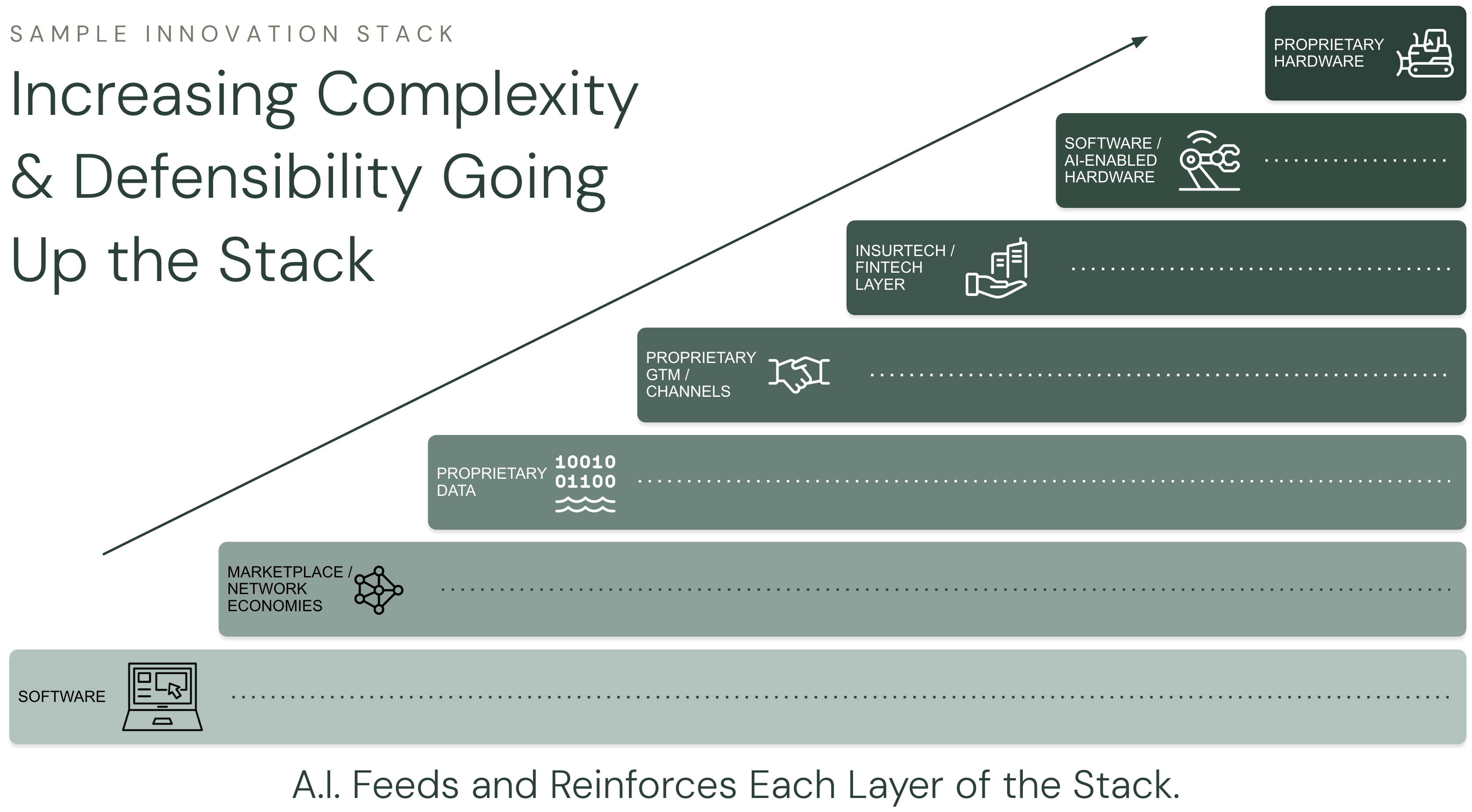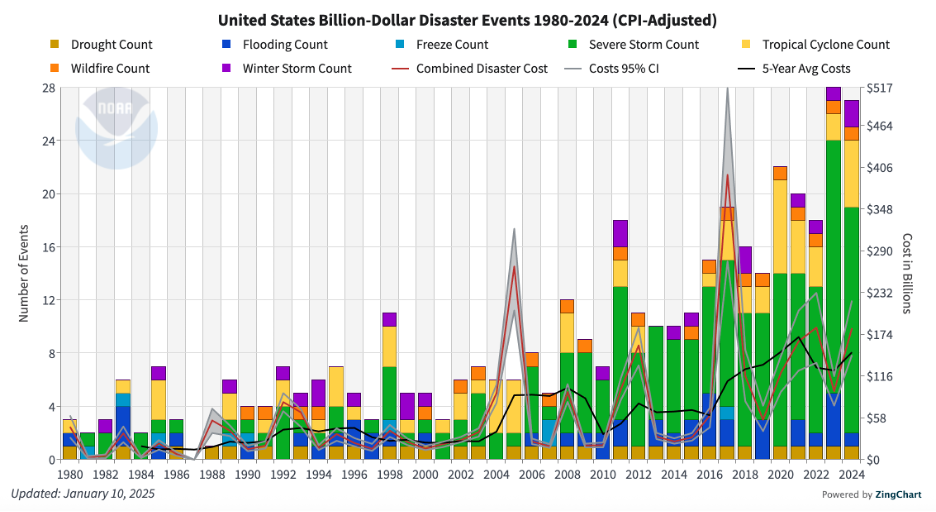Happy New Year! Why we’re (cautiously) optimistic about climate tech in 2025
By
Virta Ventures
ON
January 1, 2025

We kick off 2025 with cautious optimism about the current state of climate tech, excited to tackle the challenges ahead as well as take advantage of emerging tailwinds over the coming year.
A few months removed from the 2024 U.S. Election results and a few weeks prior to Inauguration Day, we don’t know exactly what is going to happen regarding Federal climate policy once Trump takes office in January – though we have some clues.
Our lack of clarity is driven by both the unpredictability of Trump and his advisors, including Elon Musk, and the fact that the GOP has a razor-thin margin in the House. It is also important to recognize that it is going to take the Trump administration time to work its policy initiatives through Congress, and we likely won’t know how all the chips will fall until late next year or even into 2026.
At Virta, as a venture fund investing in climate-forward technology, we’ve been watching the U.S. political landscape closely to see where things land. We see a few potential headwinds / tailwinds for companies in our portfolio that will shape our investment strategy moving forward.
Potential Headwinds
Given Trump’s broad anti-climate rhetoric, his return to office will undoubtedly bring some headwinds for climate tech. Potential partial or significant rollback of the Inflation Reduction Act (IRA) as well as new tariffs on foreign imports (China and elsewhere) will have the biggest impacts on climate tech.
The potential negative consequences have been exhaustively detailed here, here and here (and by many others). We won’t rehash those.
However, there is also hope that the worst outcomes for climate tech might be avoided. There is a strong possibility that Congress could hinder Trump’s efforts in rolling back the IRA - the majority of IRA dollars benefit red states over blue states, and many Republican lawmakers want to keep the IRA in place. Just a few House GOP members need to put constituents over party lines to flip the House against Trump’s agenda and keep much of the IRA as-is.
Additionally, friend of the Trump administration Elon Musk (via Tesla) has significant financial gains to reap from much of the IRA being kept in place and minimal tariffs instituted. We’ll see how much influence Musk has on Trump’s policy decisions and how he chooses to wield this influence.
That said, hope is not a strategy. The entire climate tech community should be prepared for a world WITHOUT the IRA and WITH significant tariffs on China and others.
Potential Tailwinds
Analyzing all of the cards on the table, we see a number of tailwinds from a Trump administration that can have a positive impact on climate tech, and are positioning our investing strategy to take advantage of these as they emerge.
Regulatory Streamlining
The Trump administration will likely come with the rolling back of regulation, the streamlining of permitting, and the cutting of red tape. Not all of this will be positive of course – meaning regulation is on the line. But, when it comes to building massive renewables projects, nuclear plants, and more, this streamlining might serve as an unlock from a regulatory and permitting perspective via hoops and hurdles eliminated for net new development. Much of this regulatory streamlining will not be bi-partisan, but Trump likely has the power to push change forward here with expected strong GOP support.
Virta portfolio company ACTUAL, as a capital planning platform for sustainability and resilience, is well-positioned to capitalize on the results of these deregulatory tailwinds – with a potential increased ease of project development comes an increased need for intelligent capital planning capabilities for organizations. ACTUAL’s platform provides a centralized place for these teams to collaboratively build capital plans, study impact, minimize risk, and maximize ROI.
Data Centers and their Power Supply
Between the bipartisan CHIPS act, regulatory streamlining, and the massive private sector push for more data processing infrastructure, the sprint to build data centers domestically is likely to increase under the Trump administration. While natural gas is likely to play a bigger role in powering these data centers than under a more clean energy-friendly administration, we still expect growth within renewables, storage, nuclear, and data center energy / cost saving solutions to meet growing data center demand and resulting increases in data center supply.
Virta’s portfolio company Mercury is building the energy efficiency product designed for this new generation of data centers to meet this demand for cost and energy-saving data center solutions. Mercury’s platform enables data center companies to shift energy-intensive workloads to times when more renewable energy is available, reducing costs and energy consumption. Through this, they directly address high-priority pain points for data center operators.
Nuclear Energy
In addition to his advocacy for general regulatory streamlining, Trump has privately championed nuclear energy during his recent campaign. In addition, many of Trump’s largest donors (Elon Musk, Peter Thiel, and Marc Andreesen) have been big champions of and investors in nuclear. Given building bipartisan support for nuclear and private sector efforts from the hyperscalers (Amazon, Microsoft), we are very confident that nuclear will see a strong resurgence in the coming years.
As we unlock our nuclear capabilities as a nation, there exists a need for solutions to help developers / operators navigate complex nuclear regulation to move projects forward. Virta portfolio company Everstar helps nuclear projects go-to-market faster by streamlining pathways to regulatory approval – helping us take advantage of these crucial tailwinds for nuclear development.
Private Sector Support and State / Local Action
We expect the private sector to step up even more to fill the void left by federal policy, just as we saw after Trump was elected in 2016. Consumers and businesses will continue to increase their adoption of climate-forward solutions because they make economic sense and/or solve an acute problem. The same is true of state and local governments, many of which will implement their own policies to encourage growth of various climate technologies where Federal policies fall short. In absence of friendly regulation, this broader non-Federal embrace of climate can continue to push climate tech companies forward.
We remain bullish on climate
We and others remain optimistic, and we are unwavering in our general strategy and focus – because the climate fight was never going to live or die in Washington. The products and climate solutions that we back at Virta win the market because they are better, faster, and cheaper, and go to market on business fundamentals, making them resilient even in the face of regulatory change.
Policy shifts can’t stop fundamental trends at work. As the cost curves for solar, storage, wind, EVs, and other clean technologies continue to march downward, deploying renewables “just makes sense.” As soft costs and adoption go up, so does the need for ecosystem plays increasing efficiency and adoption. Virta’s portfolio of “picks and shovels” startups – the bits powering atoms of renewables growth – are superpowered solutions addressing this need.
Technology investment progresses society further. Bets in the climate space should be seen as investments in our future as a functional, technologically-enabled society. With the all-star Virta portfolio companies that “just make sense” from a business POV, this should be readily evident. We believe that these types of companies bringing both impact and business capability to the table will carry climate innovation and technological progress forward regardless of what happens in the White House.
And, as always, we will continue to look for outstanding founders who can attract talent, customers, and capital. The best founders can overcome most challenges, including political headwinds.
Are you a founder / investor navigating this new climate tech normal? We’d love to chat — reach out to us here.
insights
We regularly publish thought pieces where we share lessons from renowned investors and delve into strategies for investing in the transformation of vital physical industries.







